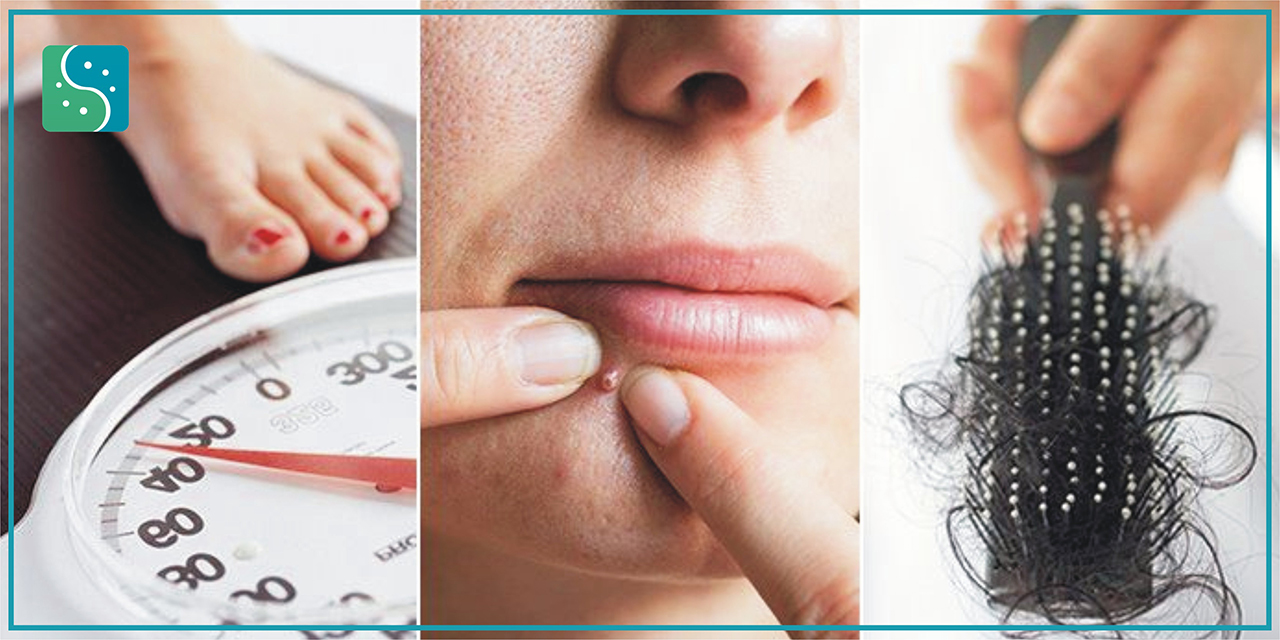Polycystic ovary syndrome (PCOS) is a condition that affects a woman’s hormone levels. Women with PCOS produce higher than normal amounts of male hormones. This hormone imbalance causes their body to skip menstrual periods and makes it harder for them to get pregnant.
Homoeopathy can be a boon to patients having PCOS. Homoeopathic medicines help to treat PCOS and manage its symptoms by working to set right the hormones that are out of balance in such cases. Homoeopathy helps to regularise the menstrual cycle and manage other signs and symptoms of PCOS like heavy periods, facial hair, pimples, hair fall and skin pigmentation. There are numerous medicines in homoeopathy to treat these cases, but among these, the medicine which is required to get rid of the disease from its roots varies from case to case. Homoeopathic medicine needs to be selected as per signs and symptoms in each individual case.
The treatment in homoeopathy is tailored to the individual. Homoeopathy does not have any specific remedies, estrogen dominance, insufficient progesterone, or Hormone Replacement Therapy (HRT). Homoeopathy takes a distinct approach to problems, thereby treating them holistically.
Hormone imbalance also leads to a variety of emotional disturbances. Hormones can alter mood and behaviour. Additional tension may arise as a result of an increase in weight and skin concerns such as acne, or facial hair. A person with hormonal imbalance can be treated with homoeopathy gently and safely. Homoeopathy can help manage both emotional and physical problems. Several homoeopathic treatments match the symptom description of people suffering from hormone imbalance.
PCOS affects a woman’s ovaries, the reproductive organs that produce estrogen and progesterone hormones, that regulate the menstrual cycle. The ovaries also produce a small amount of male hormones called androgens. The ovaries release eggs to be fertilized by a man’s sperm. The release of an egg each month is called ovulation. Follicle-stimulating hormone (FSH) and luteinizing hormone (LH), which are produced in the pituitary gland, control ovulation. FSH stimulates the ovary to produce a follicle, a sac that contains an egg and then LH triggers the ovary to release a mature egg.PCOS is a “syndrome,” or group of symptoms that affects the ovaries and ovulation. Its three main features are:
In PCOS, many small, fluid-filled sacs grow inside the ovaries. The word “polycystic” means “many cysts.” These sacs are actually follicles, each one containing an immature egg. The eggs never mature enough to trigger ovulation. The lack of ovulation alters levels of estrogen, progesterone, FSH, and LH. Progesterone levels are lower than usual, while androgen levels are higher than usual. Extra male hormones disrupt the menstrual cycle, so women with PCOS get fewer periods than usual.
The most common signs and symptoms of PCOS include:

The exact cause of PCOS is unknown. There’s evidence that genetics play a role. Several other factors, most importantly obesity, also play a role in causing PCOS:
In most cases, your doctor can diagnose PCOS after an examination and discussing your symptoms. They may order blood tests or perform an ultrasound to help with the diagnosis.
Your doctor will:
One of the best ways to cope with PCOS is to maintain a healthy bodyweight, eat nutritious foods and exercise regularly. These changes to your lifestyle can affect hormone levels, in turn regulating your menstrual cycle and easing your symptoms.
Yes, you can get pregnant if you have PCOS. PCOS can make it hard to conceive while also increasing your risk for certain pregnancy complications, but many people with PCOS do get pregnant on their own.
Yes, it’s possible to have PCOS and not have any symptoms. Many people don’t even realize they have the condition until they have trouble getting pregnant or are gaining weight for unknown reasons. It’s also possible to have mild PCOS, where the symptoms aren’t severe enough for you to notice.
Having PCOS may increase your risk for certain pregnancy complications, although most women with PCOS are able to successfully carry a pregnancy. Other complications of PCOS related to pregnancy include increased risk of:
PCOS is a common condition that affects your menstrual cycle and causes other symptoms. Homoeopathic medicines help to treat PCOS and manage its symptoms by working to set right the hormones that are out of balance in such cases. Homoeopathic medicines help to regularise the menstrual cycle and manage other signs and symptoms of PCOS like heavy periods, facial hair, pimples, hairfall and skin pigmentation. Lifestyle changes and homoeopathic treatment can help you manage the symptoms, lower your risk of other health conditions and help you get pregnant (if pregnancy is your goal).